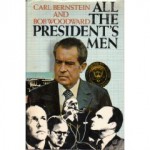Road 443 from Modi’in to Jerusalem through the West Bank has supposedly reopened today for use of the Palestinians who live along it. My new piece in The American Prospect explains what has actually happened.
Arriving home in Israel after a semester teaching in New York, I got in a taxi at Ben-Gurion Airport and asked the cabbie to drive me to Jerusalem. “Take the main road, not Route 443,” I said. Route 443 runs through the West Bank. When it was transformed from a country road to a highway in the 1980s, Palestinian land was expropriated under the legal fiction that the project’s main purpose was to serve Palestinian residents of the area. Since 2002, however, the Israeli army has barred Palestinians from using it. I take 443 only when I must to cover a story.
“I don’t like 443 either,” the cabbie said. ” It’s dangerous now that the Supreme Court made them let Arabs use it. ” He pronounced “Supreme Court” like a curse. Such antipathy is common among Israeli right-wingers, who regard the Court as a club of bleeding hearts. I prefer a calm driver, especially on a road into the mountains, so I didn’t argue politics with him.
Nor did I point out his factual errors: The army hadn’t yet opened the road to Palestinians. That’s planned for today. Even then, the military will allow so little access to the villagers living near the road that they will have scant reason to use it. All this is in keeping with the Supreme Court’s ruling last year, which affirmed Palestinian rights under international law — and then rendered that affirmation nearly meaningless by allowing the military a free hand in setting new “security arrangements” for the highway.







